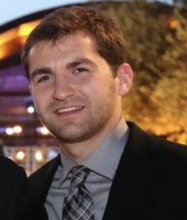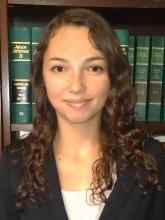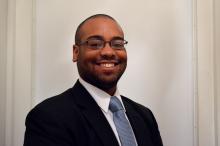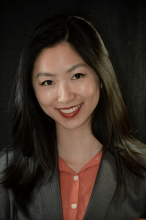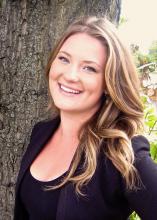Gathering Experience
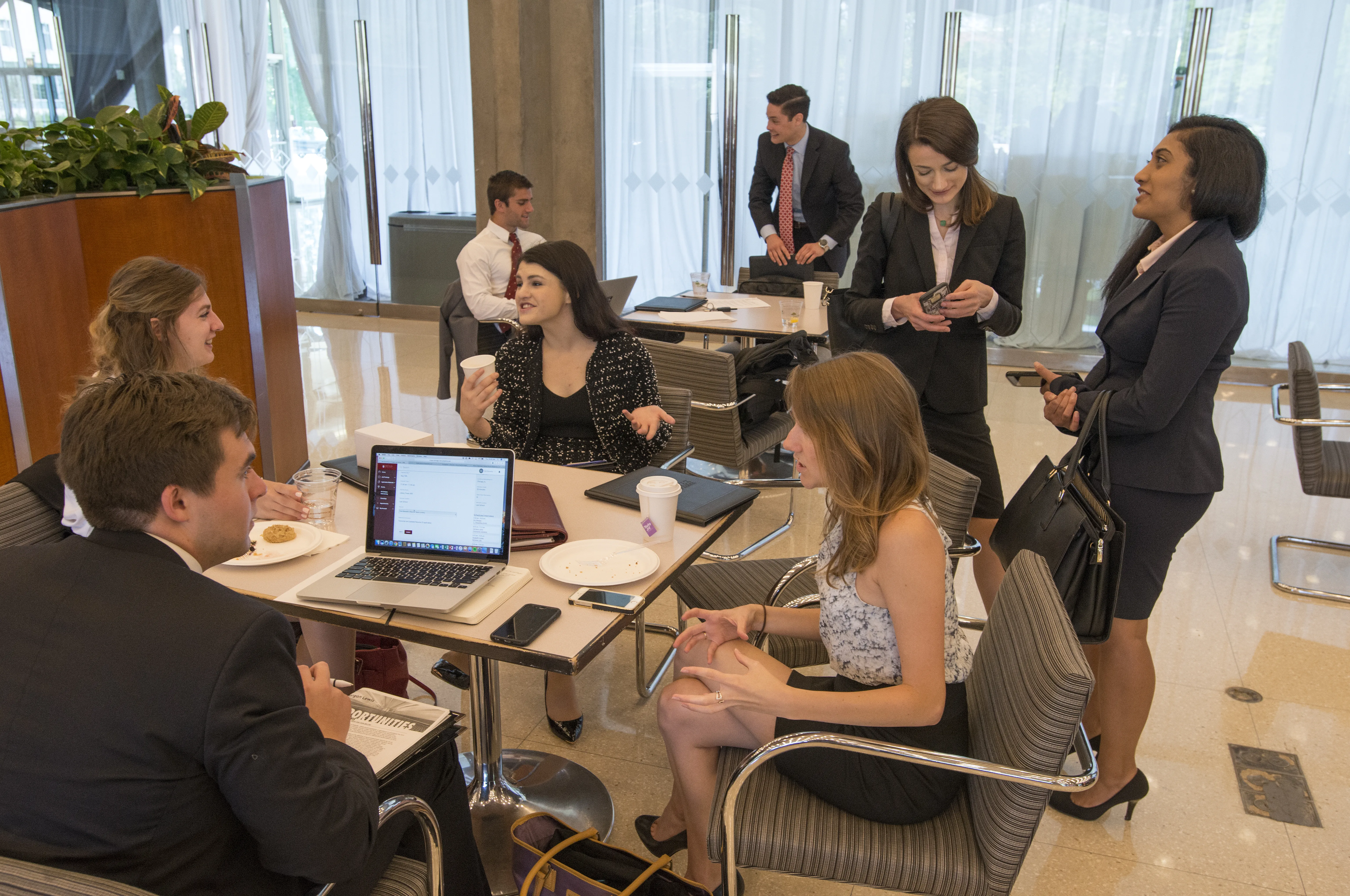
They learned corporate law in a Hong Kong consulting firm and in the Chicago offices of GrubHub. They explored government service in a US senator’s office, ERISA compliance at Jones Day, and mergers and acquisitions at Simpson Thacher & Bartlett LLP. They examined vendor contracts for the National Basketball Association, and they served the public interest at the North Australia Aboriginal Family Legal Service in Darwin, the American Civil Liberties Union in San Diego, and at the John D. and Catherine T. MacArthur Foundation in Chicago.
For Law School students, summer is a time to build real-world experience, explore different practice areas and career paths, and build relationships—and the classes of 2018 and 2019 did just that in jobs across the country and around the world.
Complete data is not yet available for summer 2017, but numbers from previous years highlight the range of strong opportunities that give Law School students a chance to experience the workplace firsthand. Among the rising third-year students in 2016, 90 percent worked at law firms—although many of those split that work with jobs in the public sector. The other 10 percent pursued corporate, public interest, or government work as their primary employment. Among rising second-year students in 2016, 36 percent worked in government, 32 percent worked in public interest, and nearly 16 percent worked at a law firm. Eight percent pursued corporate or business work, and 7 percent worked as research assistants.
“Our law students have such a wide variety of opportunities available for summer work, and we encourage them to think carefully about these choices so they take summer positions that best support their career goals,” said Lois Casaleggi, Senior Director of Career Services. “The options they pursue let them deploy the skills that they are learning in law school while gaining valuable experience and exposure to the intricacies of the practice of law in their specific areas of interest.”
Today, we look at how several of the Law School’s second- and third-year students spent the summer of 2017—and what they learned along the way.
Ethan Back, '19
Where did you work this summer? I spent the summer as a legal intern at the National Basketball Association in New York. I drafted, edited, and reviewed third-party vendor contracts, wrote memoranda for internal distribution, and researched various topics, including gambling laws, the right of publicity, and firearm laws.
What drew you to the opportunity? I have always been interested in working in sports law, so taking the opportunity at the NBA was a no-brainer. I had also heard positive things about the intern experience, and my expectations of receiving quality work were met.
What did you learn about yourself or the area in which you worked? Much of the work I did was a cross between law and business, so I learned a lot about what goes into making a professional sports league financially successful and how lawyers can play a role in that process.
How did the Law School help prepare you? The classes that first-year law students take aren't geared toward working in a corporate environment, but the way in which professors at the Law School get their students to think is invaluable preparation in and of itself. While I didn't necessarily utilize the content of what I learned in the classroom, I frequently found myself applying the way of thinking that was taught throughout the year.
In six words, how would you describe your summer work experience? Engaging work, awesome people, great experience.
Holly Berlin, ’18
Where did you work this summer? I worked at the ACLU of San Diego this summer. My responsibilities included drafting pleadings and research memoranda on immigrants' rights, police practices, and freedom of religion.
What drew you to the opportunity? The attorneys at the ACLU of San Diego office are the best at what they do. I was excited to have the chance to learn from them while putting my efforts toward cutting-edge civil rights litigation. San Diego is a frontier—its physical position in the country, 15 miles from the border, means that advancing immigrants' rights really happens there. It was exciting, and often heartbreaking, too, to be on the front lines.
What did you learn about yourself or the area in which you worked? I spent a lot of time this summer thinking about clients and how we can do a better job as lawyers of truly advocating for the client. I've always wanted to do impact litigation, but in trying to make an impact, it's easy for the client to get lost. The attorneys in my office did a fantastic job showing me how to keep the client—and the community—front and center.
How did the Law School help prepare you? The nature of the ACLU is that its legal theories push the law further than any case that's already been handed down. Chicago's brand of requiring us to think creatively and critically was instrumental to getting me in that mindset. It was also helpful to have a solid background of the rules of litigation from classes like Advanced Civil Procedure and Evidence, and practical litigation experience through the Poverty and Housing Law Clinic.
In six words, how would you describe your summer work experience? San Diego has the best tacos.
Amar Bhatti, ’19
Where did you work this summer? During my 1L summer, I worked as a legal intern at the John D. and Catherine T. MacArthur Foundation in Chicago. I worked on projects in a variety of practices, such as banking and finance, general corporate, real estate, and tax.
What drew you to this opportunity? I became fascinated with private foundations after my experiences interning in government and the nonprofit sector. I realized the significant impact private foundations have in supporting NGOs and the nonprofit sector more broadly. Serving as a legal intern confirmed this realization and provided me the unique privilege to gain substantive exposure to transactional practice while working with an organization that was committed to the public interest.
How did the Law School help prepare you? The Law School was instrumental in helping me identify the internship, prepare for the interview, and succeeding as an intern. Specifically, I am grateful for my Legal Research and Writing class which gave me the confidence and ability to draft a legal memorandum that was shared with senior foundation staff and helped influence a key management decision.
In six words, how would you describe your summer work experience? Challenging, Impactful, Individualistic, Grants, Loan Agreements
Jordan V. Hill, ’18
Where did you work this summer? I worked at Jones Day in the Washington, DC, office where I addressed client issues, ranging from ERISA compliance to engineer liability, and helped prepare partners for client presentations. Then I worked the Judiciary Committee office for [Utah] Senator Mike Lee in Washington, DC. There, I researched and crafted policy proposals and legislation related to immigration and state zoning, as well as performed background research on judicial nominees.
What drew you to these opportunities? I wanted to be in Washington, DC, and I heard great things about Jones Day’s practice areas and firm culture. Working at the firm exceeded my expectations. The people were amazing, and I learned a lot. I wanted to work with Senator Lee’s Judiciary Committee’s office because I wanted to have some exposure to an office that works with national policy and judicial nominations.
What did you learn about yourself or the field in which you worked? I learned that there is an important team aspect to legal work. People cared about my development and on the matters that I was working. I was pleasantly surprised at how open everyone was to my questions, and I felt comfortable taking ownership of the work that I was assigned.
How did the Law School help prepare you? Chicago Law teaches you to think outside of the box. It was important in researching client issues and national policy to approach problems from many different angles in order to address client concerns. I think my work in the Corporate Lab was extremely helpful, as the clinic teaches you how to address your client’s problem, rather than answer an abstract legal question.
In six words, how would you describe your summer work experience? It’s great to love your work.
Carina Kan, ’18
Where did you work this summer? For the first half of the summer, I was a summer associate at Simpson Thacher & Bartlett LLP, splitting between their New York and Hong Kong offices. I had the chance to try a lot of different corporate practice groups—from large groups such as M&A and funds to smaller niche groups like tax, real estate, derivatives, and executive compensation and employee benefits—and see how the work differed when in different international jurisdictions. For the second half, I worked as an intern in a Hong Kong consulting firm, Asia-Euro Consultancy Ltd. In this capacity, I researched and prepared pitch decks advising on new market entry and mergers and acquisitions in Asia.
What drew you to these opportunities? I was drawn to Simpson Thacher for their strong corporate practice, their friendly and collegial working environment, and their willingness to accommodate foreign office rotations for summer associates. I was drawn to Asia-Euro Consultancy for the opportunity to see what the consulting world is like.
What did you learn about yourself or the field in which you worked? Working in both a law firm and a consulting firm this summer, I learned how closely intertwined the two fields are and how useful knowing both skillsets is to each discipline.
How did the Law School help prepare you? The Office of Career Services and the amazing network of alumni, mentors, upperclassmen, and classmates gave me a lot of insightful advice throughout the whole process of On-Campus Interviewing that eventually led me to choose Simpson Thacher. Moreover, being a part of the Doctoroff Business Leadership Program opened my eyes to all the endless business and legal possibilities that a law degree provides. In fact, it is through the Doctoroff Program that I got the opportunity to work for Asia-Euro Consultancy in Hong Kong. Lastly, the writing and analytical skills I learned during both 1L and 2L and the business skills I learned through the Doctoroff classes helped prepare me for this summer.
In six words, how would you describe your summer work experience? Wait, where did the summer go?
Chelsea Kendall, ’19
Where did you work this summer? I was an intern at the North Australian Aboriginal Family Legal Service (NAAFLS) in Australia's Northern Territory. I split my time between their offices in Darwin and in more rural Katherine. I assisted the lawyers with domestic violence, child protection, superannuation and family law cases both in the office and on trips to visit clients living in remote indigenous communities.
What drew you to the opportunity? I wanted to spend my summer working on issues of domestic violence and interacting with clients. I also was excited to get the chance to travel abroad and experience a foreign legal system firsthand.
What did you learn about yourself or the area in which you worked? I came away from the experience with a deeper understanding of the Northern Territory's child protection system and how it disproportionately affects aboriginal communities. This internship also sparked my interest in indigenous law—I am looking forward to participating in the Hopi clerkship program this coming year!
How did the Law School help prepare you? I participated in this internship through the Law School's International Human Rights Summer Internship Program, so I had the advantage of reading the reports of past NAAFLS interns from Chicago. I also found the library's Australian Law Research Guide and pre-trip international research training very helpful.
In six words, how would you describe your summer work experience? Great internship in Australia, despite crocodiles.
Nina Sobierajski, ’18
Where did you work this summer? This summer, I worked in-house at Grubhub’s headquarters in Chicago. Grubhub is a publicly-traded company that serves as a marketplace connecting diners and restaurants across the country.
What drew you to the opportunity? Throughout my 1L summer and 2L year, I participated in the Kirkland & Ellis Corporate Lab clinic at the Law School. I gained exposure to the kinds of issues and legal matters affecting in-house counsel and companies representing various industries and sizes, and I really enjoyed the work. I was thrilled when Grubhub (one of the Lab’s corporate clients) approached Lab students with the opportunity to serve its legal team.
What did you learn about yourself or the area in which you worked? I realized how much I enjoy working with various teams across the company—I value the opportunity to develop my legal judgment alongside business judgment for an employer that encourages collaboration, innovation, and entrepreneurship.
How did the Law School help prepare you? I greatly benefited from the practical and experiential courses offered at the Law School, including Corporate Lab taught by Clinical Professor [David] Zarfes and Clinical Professor [Josh] Avratin, Contract Drafting & Review taught by Professor from Practice [Joan] Neal, as well as the Accounting seminar taught by [Lecturers in Law] Phil Bach and Sean Young. Thanks to these, I began my summer with a useful skillset and as a result was able to take on substantial responsibility.
In six words, how would you describe your summer work experience? Fun, dynamic, indulging my inner foodie!
